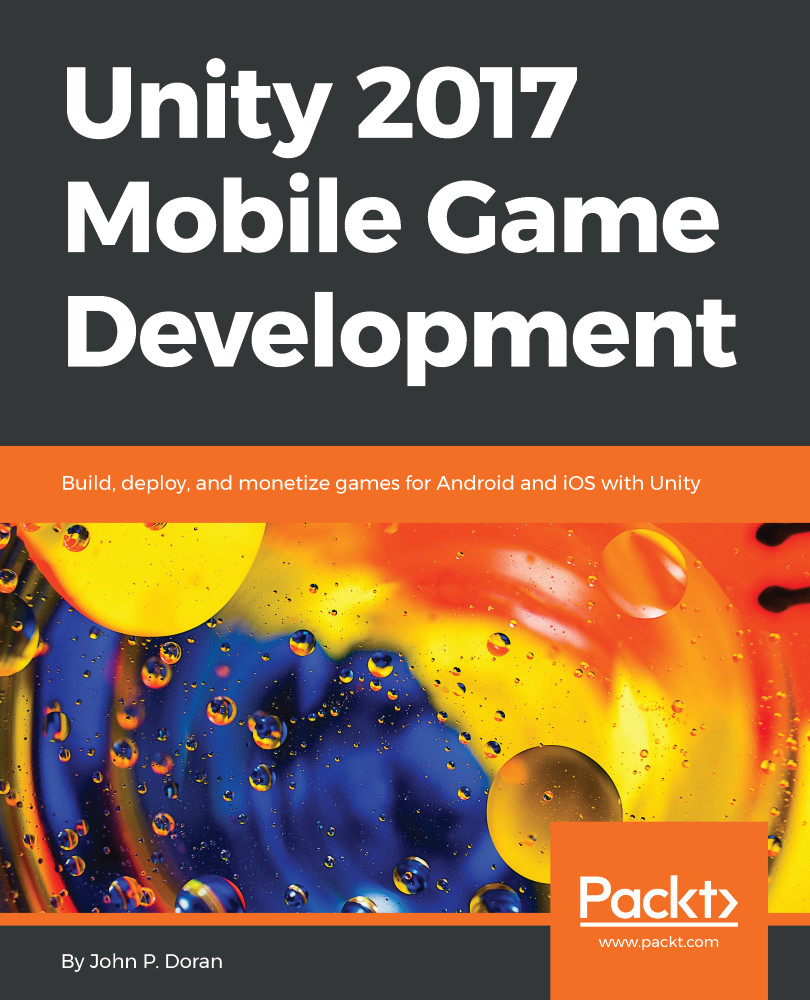As an indie or AAA game developer, you want to have your games where your customers are. More and more people buy mobile devices every year and there's no sign of this stopping any time soon. One of the big advantages of the Unity game engine is that it is cross-platform, making it easy to write your game once and then port it to other consoles with minimal changes. However, there are certain features unique to working with mobile devices, which is what this book is about.
Unity 2017 Mobile Game Development will take readers on an exploration of how to use Unity when trying to deploy your content to mobile devices. Over the course of the book, we will see how to create a mobile game and then see how to deploy it to both iOS and Android. We will explore how to add input for mobile devices and have the interface adapt to the many different screen sizes that phones have. We'll then see some ways to monetize our game by discussing Unity's in-app purchase and advertisement systems. Then, we will see how we can share our game with the world by enabling us to use Twitter and Facebook's SDK. Afterward, we will see how to work with Unity's analytics system and then polish our title in a number of different ways, before putting it on the Google Play and iOS App Stores.
-
Book Overview & Buying

-
Table Of Contents

Unity 2017 Mobile Game Development
By :

Unity 2017 Mobile Game Development
By:
Overview of this book
Unity has established itself as an overpowering force for developing mobile games. If you love mobile games and want to learn how to make them but have no idea where to begin, then this book is just what you need. This book takes a clear, step-by-step approach to building an endless runner game using Unity with plenty of examples on how to create a game that is uniquely your own.
Starting from scratch, you will build, set up, and deploy a simple game to a mobile device. You will learn to add touch gestures and design UI elements that can be used in both landscape and portrait mode at different resolutions. You will explore the best ways to monetize your game projects using Unity Ads and in-app purchases before you share your game information on social networks. Next, using Unity’s analytics tools you will be able to make your game better by gaining insights into how players like and use your game. Finally, you’ll learn how to publish your game on the iOS and Android App Stores for the world to see and play along.
Table of Contents (11 chapters)
Preface
 Free Chapter
Free Chapter
Building Your Game
Setup for Android and iOS Development
Mobile Input/Touch Controls
Resolution Independent UI
Advertising Using Unity Ads
Implementing In-App Purchases
Getting Social
Using Unity Analytics
Making Your Title Juicy

